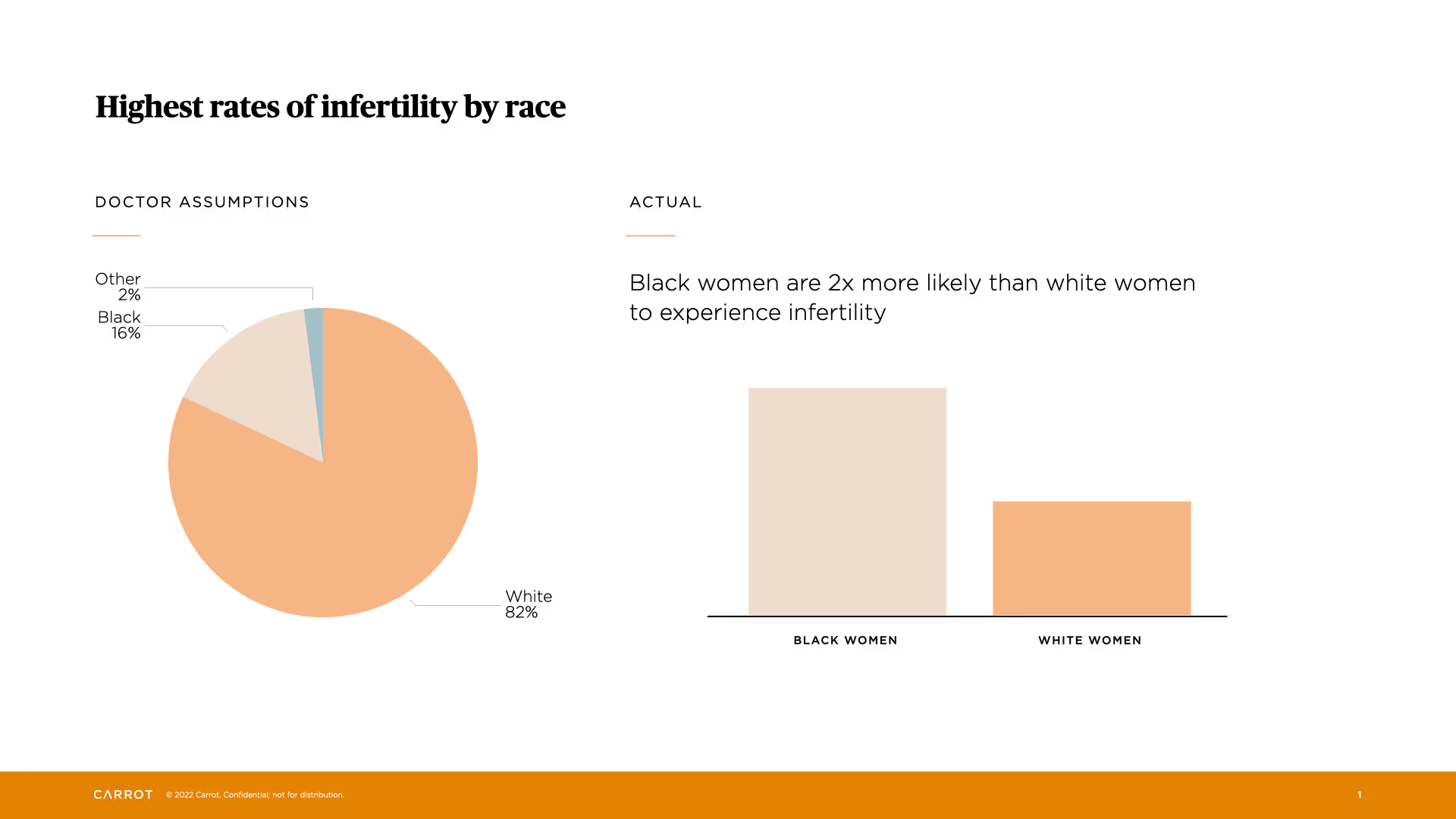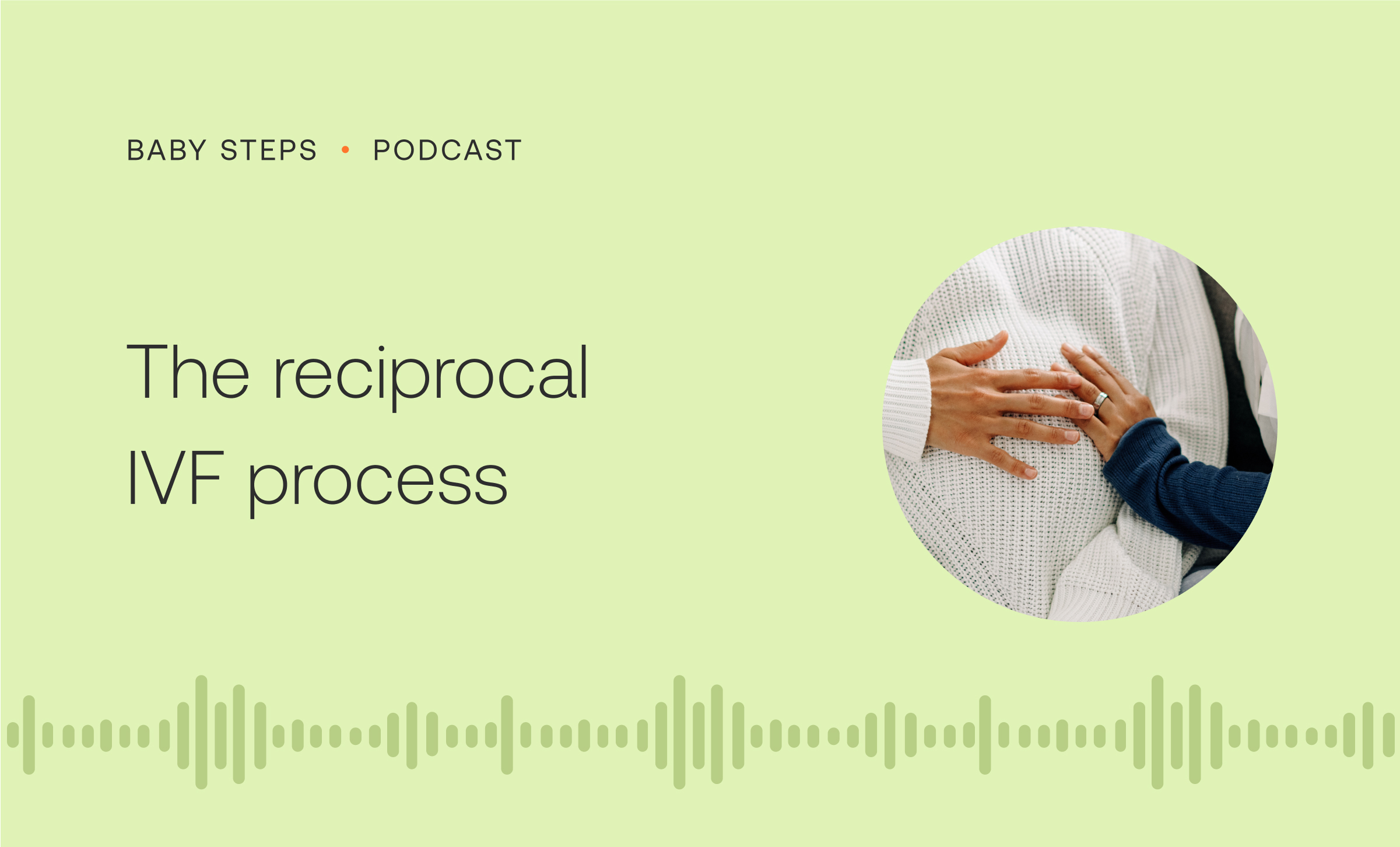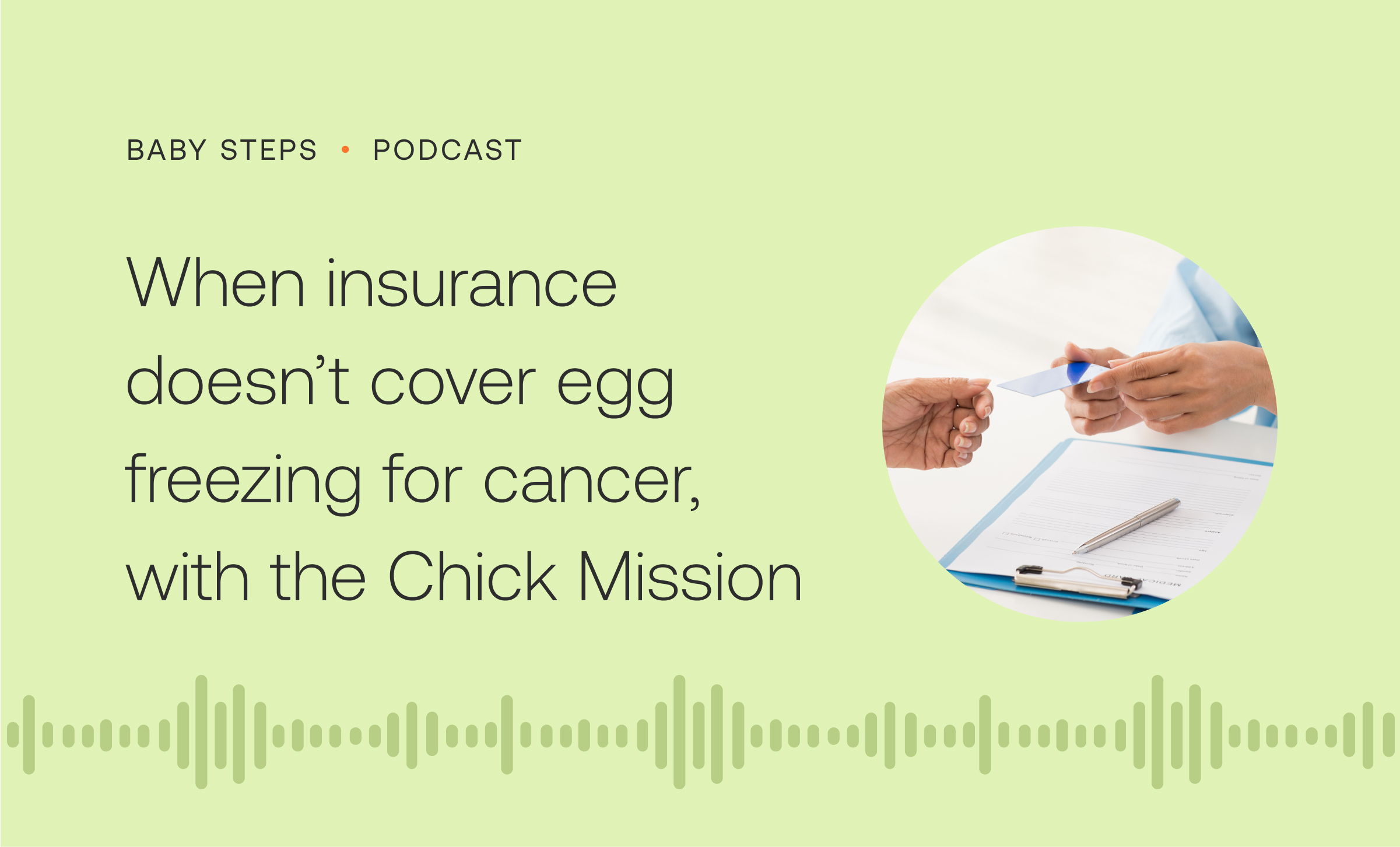In the U.S., Black and white people have significantly different experiences when pursuing fertility care and other family-forming journeys. Black women are almost twice as likely to experience infertility than white women but are less likely and take longer to seek treatment. Black people are more likely to have more unsuccessful IVF treatments, are less represented as adoptive and foster parents, and can have a more challenging time finding a minority egg or sperm donor.
While conversations sometimes focus on birth equity — the effort to improve pregnancy outcomes for all people — access to high-quality care and resources before pregnancy is a critical part of this goal. As an HR leader, you have the powerful opportunity to improve your employees’ access to family-forming support. Ensuring your offerings will meet the needs of all your employees starts with understanding the history behind these disparities — and the role you can play in improving access and outcomes.
How racial bias decreases access to fertility care
Before we explore how employers can help improve some of the inequities in fertility and maternity care, it’s crucial to understand how we got here.
“A lot of medicine was birthed through the mistreatment of Black women,” said Carrot’s Director of Preventive Health Raquel Hammonds, NMD, MPH. “You can’t talk about these disparities without recognizing this dark and painful past.”
In the U.S., Black people have been used for profoundly unethical tests and treatments since slavery. Here are just a few examples:
- John Marion Sims, often credited as the “father of modern gynecology,” experimented on enslaved Black women to pioneer tools and methods still used for women’s reproductive health today.
- Henrietta Lacks, a poor Black woman, non-consensually had her cervical cells taken by researchers. They were later used to advance modern medicine from vaccine development to improving in vitro fertilization (IVF).
- The Tuskegee Syphilis Study experimented on Black men infected with syphilis for 40 years without their informed consent and withheld treatment until the study ended and was publicly condemned in 1972.
Historical injustices have led to stereotypes and biases that continue to this day. Today, many doctors still hold the belief that Black people experience less pain, which leads to their health being more likely to be dismissed than those of white people. Stereotypes also create barriers to accessing fertility care and treatment. Members of the general public and even doctors may believe the stereotype that Black women are “hyper-fertile," but in fact, research suggests that Black women experience infertility almost twice as often as white women. For example, in one survey, only 16% of doctors surveyed correctly identified Black women as the racial group most at risk for infertility. These misconceptions can lead to delays in doctor referrals to fertility treatments. For in vitro fertilization (IVF), for example, Black women often begin treatment 1 - 2 years later than white women. Because age has a significant impact on success rates, Black women often take longer and need more rounds of IVF to get pregnant.

In some cases, socioeconomic status plays a role in limiting access to fertility care. Black women also report being four to six times more likely than white women to have trouble paying for care or having time for appointments.
“But education isn’t always a protective layer,” Dr. Hammonds said. “All Black women struggle to be heard.” For example, college-educated Black women die at higher rates of pregnancy-related causes than white women who didn’t finish high school.
Black people are more likely to experience roadblocks in multiple family-forming journeys
Black aspiring parents also run into barriers when pursuing donor-assisted reproduction journeys and adoption. Because most egg and sperm donors are white, if Black prospective parents are interested in finding donor materials from others of their race, many people of color see their options dwindle to practically none.
Black children are overrepresented in the foster care system and can often benefit from being in homes that match their cultural background, but the myth that Black people don’t adopt can discourage some from choosing this route. Adoption advocates say that sharing more stories about Black adoptive parents and providing financial support to those interested in adoption can help.
Fertility benefits can provide culturally competent navigation and care
Inclusive fertility benefits help employers support all paths to parenthood for all employees. A fertility benefits program that helps bridge gaps in access should include:
- Financial support for all family-forming journeys. Financial support can help remove costly barriers to journeys like IVF and adoption and is one impactful way to help close the access gap between Black and white families.
- Care navigation: Experts can help employees find resources like egg and sperm banks with donors that match their preferences, vetted adoption agencies, and other support.
- Access to BIPOC providers: While culturally competent care can come from providers of any race, research shows that outcomes are often better when Black people receive care from Black providers. At Carrot, we’ve created a feature for BIPOC members to request a BIPOC provider if they desire one.
- Emotional support: Trained therapists can help patients unpack and cope with internalized bias and the cultural considerations that may be impacting their fertility journeys.
Racial disparities in fertility care should be a year-round conversation — not just one that takes place during Black History Month. Inclusive fertility benefits are a powerful way to demonstrate your company’s commitment to change year round and can help make it possible for all of your employees to reach their family-forming goals.
Want to learn how Carrot can support the fertility needs of all of your employees — regardless of their race or ethnicity? Get in touch with us.













